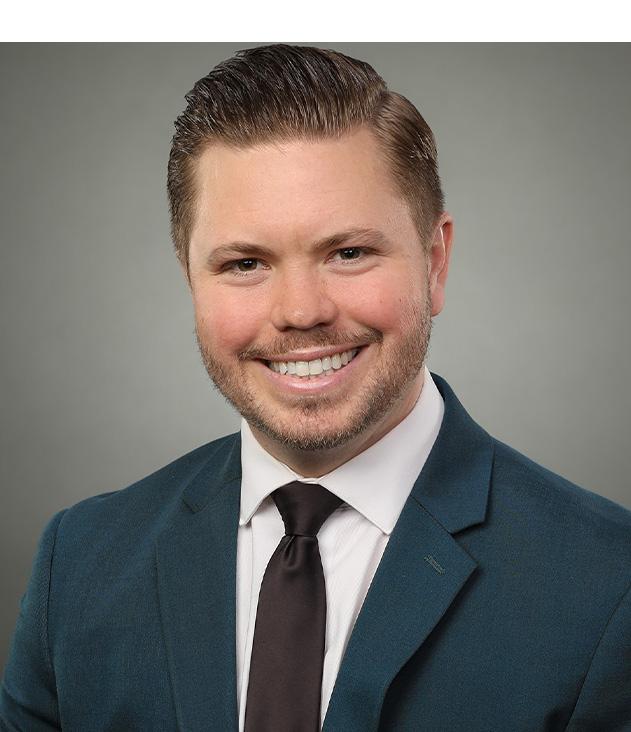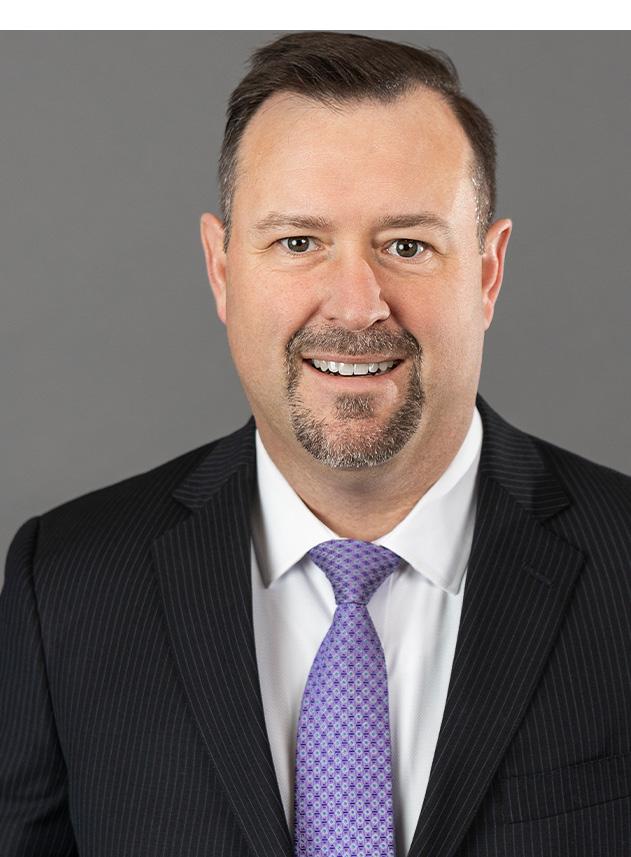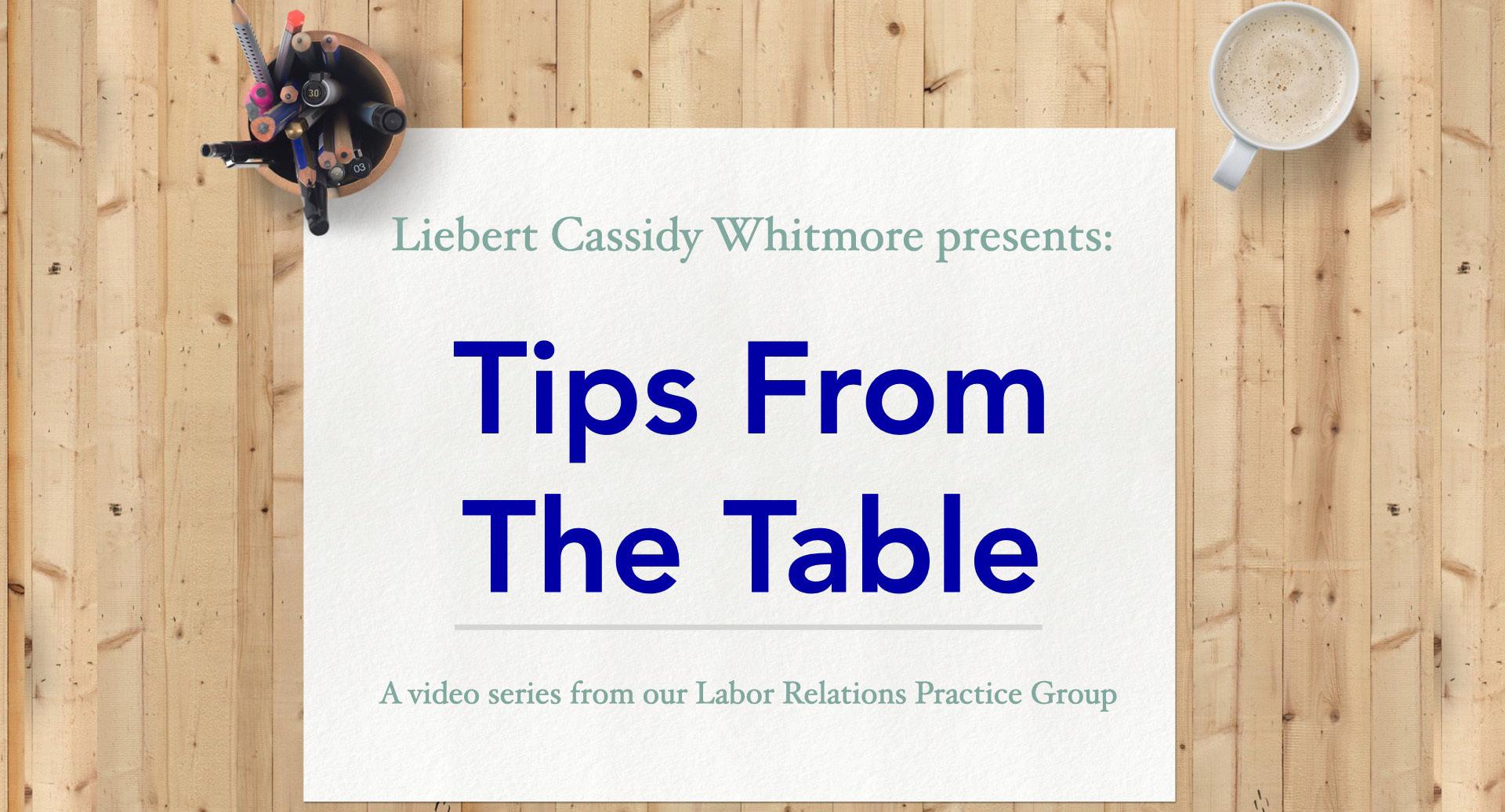




Cynthia O’Neill
Partner | San Francisco
Nathaniel J. Price
Associate | Los Angeles
Brian Hawkinson
Associate | San Francisco
Ronni Cuccia Law Clerk | Los Angeles
Stephanie J. Lowe
Senior Counsel | San Diego


LCW Partner Geoff Sheldon, Senior Counsel David Urban, And Associate Kelsey Ridenhour Win Dismissal Of Dues Deduction Claims.
A county employee sued his employer and union representatives alleging that the County deducted dues from his wages without his authorization in violation of the First and Fourteenth Amendments of the U.S. Constitution. After the suit was filed, the unions refunded the deductions and informed the county that the employee had cancelled his union dues authorizations.
The district court found for the county, and the employee appealed. The Ninth Circuit Court of Appeals determined that the district court properly dismissed the county because the employee could not establish any county liability under 42 USC section 1983 for violating the employee’s rights under the First and Fourteenth Amendments. The county’s action to deduct the dues was not a deliberate choice to violate the employee’s rights; on the contrary, the county was not aware that the employee had not authorized the deductions, and the law does not require the county to ensure the accuracy of a union’s certification to collect union dues.
LCW Partners Suzanne Solomon, Nathan Jackson, And Senior Counsel David Urban Defend Defense Verdict On Appeal.
LCW Partners Suzanne Solomon, Nathan Jackson, and Senior Counsel David Urban convinced the California Court of Appeal to uphold the defense verdict that LCW won in 2022. The jury had rejected a former manager’s claims that she had been fired in retaliation for whistleblowing. In March 2024, the California Court of Appeal dismissed the former manager’s appeal because there was no reversible error as to the two jury instructions the former manager had raised.


Lia Maria Fulgaro, an Associate in our Los Angeles office, specializes in labor and employment law matters. With a wealth of experience in the legal field, Lia’s expertise encompasses a wide range of areas, including complex wage and hour class action defense and representation of clients in singleplaintiff employment claims.
Sgt. Muldrow worked as a plainclothes officer in the St. Louis Police Department’s specialized Intelligence Division for nearly 10 years. She investigated public corruption and human trafficking cases, and oversaw the Gang Unit and Gun Crimes Unit. By virtue of her position, Sgt. Muldrow was also deputized as a Task Force Officer with the FBI, had FBI credentials, an unmarked take-home vehicle, and the authority to pursue investigations outside of St. Louis.
Sgt. Muldrow’s job performance was exceptional. In 2017, the outgoing commander of the Intelligence Division referred to her as a “workhorse” and considered her his most reliable sergeant. But the new Intelligence Division commander told the Department that he wanted to replace Sgt. Muldrow with a male officer. The new commander – who often referred to Sgt. Muldrow as “Mrs.” rather than “Sergeant” –testified that a male officer seemed like a better fit for the Division’s dangerous work.
The Department approved the transfer of Sgt. Muldrow to a uniformed position. While her rank and pay remained the same, her responsibilities, perks, schedule, and wardrobe choices changed. Sgt. Muldrow no longer worked with high-ranking officials on priority matters in the Intelligence Division. Instead, she supervised the day-to-day activities of neighborhood patrol officers and handled various administrative matters. Sgt. Muldrow lost her FBI status and vehicle, and her work week went from Monday-through-Friday to a rotating schedule that included weekend shifts.
Sgt. Muldrow sued the city under Title VII to challenge the transfer. The District Court granted the city’s request for summary judgment, and held that Sgt. Muldrow needed to show that her transfer effected a “significant” change in working conditions and produced a “material
employment disadvantage” - a heighted standard that Sgt. Muldrow could not meet. Sgt. Muldrow appealed and the US Court of Appeals for the Eighth Circuit affirmed. The US Supreme Court granted certiorari.
In a unanimous decision, the Court held that an employee who is challenging a job transfer under Title VII need not show that the allegedly discriminatory transfer produced a significant employment disadvantage. Rather, an employee need only show that the transfer brought some harm with respect to an identifiable term or condition of employment.
The Court’s decision overturned the ruling in the Eighth Circuit, and precedent in other circuits, that mandate that employees challenging a transfer under Title VII must meet a heightened threshold of harm requirement, described as “significant,” “serious,” “materially adverse,” or similar terms. As the Court explained, to demand “significance” where the law does not require it adds requirements that Congress enact. The law only requires that employees show an allegedly discriminatory transfer brought about some “disadvantageous” change in employment terms or conditions.
Sgt. Muldrow’s transfer was a significant change in assignment for a long-time, respected police sergeant. The Court found that Sgt. Muldrow’s allegations, if proven true, “left her worse off several times over,” and noted that it did not matter that her rank and pay remained the same or that she could still advance to other jobs. Title VII prohibits making a transfer based on sex with the consequences Sgt. Muldrow described.
Muldrow v. City of St. Louis, Missouri, 144 S.Ct. 967 (2024).
Dr. Andrew Mattioda began working at NASA in 2000. He has a degenerative defect in his hips and a disease of the spine, which causes uneven vertebrae growth and scoliosis. These physical disabilities required Mattioda to purchase premium-class airline tickets for longer flights so he could frequently change positions and stretch.
By 2011, Mattioda had informed NASA about his disabilities and limitations. From 2011-2018, Mattioda alleged he was discriminated against through: his supervisors’ derogatory comments; denial of work opportunities; unwarranted negative job reviews; and resistance to his requests for disability-based accommodations.
In 2011, one supervisor allegedly responded to Mattioda’s request for a premium-class upgrade and asked why Mattioda could not “just tough it out or suck it up and travel coach.” That supervisor allegedly told Mattioda that he felt another scientist was doing all of Mattioda’s work and that he did not respect Mattioda. The supervisor told Mattioda at a NASA holiday party that Mattioda need not get his hopes up for a promotion.
Mattioda alleged that the supervisor expressed those same negative sentiments to other employees, including telling one of Mattioda’s coworkers that he felt Mattioda was lazy and was “using his medical disability issues to avoid work.” The disparaging comments were so pervasive that some colleagues told Mattioda they viewed the comments as “background noise.”
A supervisor allegedly inhibited Mattioda’s work opportunities by: declining to support Mattioda’s nomination for a promotion while supporting other candidates; failing to authorize a spot for postdoctoral program candidate to support Mattioda’s work; lying to Mattioda that he could not virtually present at a conference; declining to involve Mattioda in projects;
and requiring only Mattioda, and none of his other colleagues, to submit an itemized travel request.
Another supervisor allegedly told Mattioda that he would have to use his own grant money to pay for premium-flight ticket upgrades and warned him that he could lose his job if he kept requesting such accommodations. The supervisor also: expressed concerns on Mattioda’s performance reviews that his disability-related travel limitations would impact his career; lowered one of his ratings on that basis; and criticized him for not traveling to the point of questioning whether he was “still committed to being a high-profile scientist at NASA.
Mattioda sued in the federal district court, alleging a hostile work environment claim under the Americans With Disabilities Act (ADA). The district court dismissed the hostile work environment claim, finding that Mattioda had not established a causal link between the alleged harassment and his disabilities.
The Ninth Circuit Court of Appeals held that Mattioda had alleged a sufficient link to warrant a trial. The Court explained that the threat of losing his job if he kept requesting premium-flight tickets as an accommodation was relevant to the hostile work environment claim. The Court also noted that the district court failed to acknowledge that the alleged series of harassing conduct had occurred after Mattioda’s supervisors were informed of his disabilities. As a result, Mattioda sufficiently established a causal link between the harassing conduct and his disabilities.
Finally, the Court rejected NASA’s argument that the harassment was not sufficiently severe or pervasive to establish a hostile work environment, explaining that Mattioda alleged his supervisors inhibited his work opportunities, repeatedly made harassing and derogatory comments over a period of years, vaguely threated his job, and made insulting comments about his reasonable-accommodation requests and job performance. Taken together, Mattioda’s claims were enough to maintain a plausible hostile work environment claim.
The Court held that employees may bring disability-based hostile work environment claims under the ADA and the Rehabilitation Act (RA). With this decision, the Ninth Circuit joined other circuit courts that have considered the issue.
Mattioda v. Nelson, 2024 US App. Lexis 9641 (9th Cir. 2024).

With the enactment of Senate Bill 553, the legislature amended Labor Code section 6401.7 and added Labor Code section 6401.9, requiring employers to adopt and implement a Workplace Violence Prevention Plan (WVPP) and corresponding training for their employees by July 1, 2024. As the effective date for these statutory requirements rapidly approaches, LCW has developed a number of resources to help employers develop a WVPP for their worksites and training for their employees in order to comply with these new obligations. (See here for additional information about LCW offerings and here for a special bulletin on the same topic).
Option 1:
Comprehensive package including LCW’s model WVPP and template training materials along with instructions with valuable insight and explanation as to how to customize the WVPP for your unique workplace specific issues as well as how to implement and maintain an effective WVPP moving forward. This training will also provide detailed guidance regarding the customization of LCW’s training materials to effectively train your employees on issues specific to your workplace(s).
Option 1 Purchase Includes:
• Model Workplace Violence Prevention Plan (with notes on how to customize for your organization)*.
• Checklist of plan/training requirements.
• Slides you can customize and use to train your workforce.
• Three-month access to the two hour webinar recording which provides instructions on how to customize both the Plan and the training (recording length: two hours).
Option 2:
Model Workplace Violence Prevention Plan annotated on how to update for your agency.
Option 2 Purchase Includes:
• Model Workplace Violence Prevention Plan (with notes on how to customize for your organization)*.
The Department of Industrial Relations (DIR) has recently updated their guidance on these requirements. LCW’s WVPP complies with these guidelines.
A Senior Advisor for Energy named Alice Reynolds served California Governor Gavin Newsom from January 2019 to December 2021. In December 2021, the Governor appointed Reynolds as president of the California Public Utilities Commission (CPUC).
The California Public Records Act (CPRA) requires that public records be open to inspection, unless exempt for a reason specified in the law. The deliberative process exemption, exempts records and materials that reveal an agency’s course of decision-making. If a requestor challenges the use of the exemption, the agency must show that the public interest in nondisclosure clearly outweighs the public interest in disclosure.
In 2022, the Energy and Policy Institute (EPI), a “watchdog organization,” submitted a CPRA request to the Governor’s office seeking “Reynolds’ calendars”. The Governor’s office claimed that although they had identified records responsive to the request, the records fell under the deliberative process exemption.
EPI submitted a second, narrower CPRA request, this time seeking Reynolds’ “calendar events” with representatives of 10 entities, including the CPUC, where Reynolds had been appointed to serve as president. The Governor’s office again rejected EPI’s request, stating that although they had identified records responsive to the request, they were exempt from disclosure: as “correspondence of or to the governor and his staff;” and “because they reveal the deliberative process of the Governor or his staff.”
EPI sued under the CPRA to direct the Governor to provide the records. According to EPI, the CPUC had issued a proposed decision that reduced the amount of
compensation paid to owners of rooftop solar panels, that “created new barriers for utility customers to invest in rooftop solar and battery storage.” EPI contended the records would show that while advising the Governor, Reynolds “worked with the utility groups that she now regulates as president of the CPUC” and that “questions have been publicly raised” about whether Reynolds “was lobbied or swayed by the electric companies who stand to benefit from the changes.” Thus, EPI argued, the public had a significant interest in Reynolds’ interactions with entities in the electric utility industry prior to her appointment to the CPUC. The Governor’s office reiterated that the records fell under the deliberative process exemption, and separately, a correspondence exemption.
The trial court granted EPI’s petition. The court ordered that the calendar events on Reynolds’ calendar and the information contained there – such as date, time, attendees, location and meeting agenda-- were not exempt. Correspondence concerning the calendar events, however, would be exempt. Concerning the deliberative process exemption, the trial court concluded that the public interest in withholding the calendar events did not outweigh the public interest in disclosure. The court issued the writ and the Governor’s office appealed.
The California Court of Appeal agreed with the lower court. The Court held that the public interest in nondisclosure did not clearly outweigh the public interest in disclosure because the calendar items would show only that Reynolds met with the entities. Those meetings would be expected and unremarkable, given her position. Moreover, the requests were not for the meeting agendas. The Court reasoned that although the calendars may result in limited exposure of the office’s “priorities and deliberative choices”, the intrusion was not enough to discourage candid discussion within the agency or undermine the agency’s functions.
The Court further held that there would be substantial public interest in disclosure. The Court reasoned that the CPUC is a constitutional body with broad legislative and judicial powers, so there would be a public interest in the extent to which the current CPUC president met with the CPUC and its regulated entities while serving as an advisor to the Governor. The Court concluded that the public interest in nondisclosure in this case did not clearly outweigh the interest in disclosure.
State of California v. The Superior Court of Los Angeles County.



To view these articles and the most recent attorney-authored articles, please visit: www.lcwlegal.com/news
• Recently featured in The Recorder, LCW Senior Counsel David Urban and Attorney Gabriella Kamran authored an article which explores employee rights concerning political activity. They emphasize, "California is one of several states with laws that restrict private employers from interfering in the political activities of employees." Public employees have First Amendment protection, while California labor laws shield private employees. The scope of "political activity" is broad, safeguarding employees in social and political causes. Given complex legal issues, employers should seek legal counsel before acting.
On April 1, 2024, the federal Occupational Safety and Health Administration (OSHA) issued a rule that made two changes to the procedures a Compliance Safety and Health Officers must follow when conducting a workplace inspection. First, the rule clarifies that the employee representatives who are present and participating during an OSHA inspection may either be an employee or a third party (e.g., union representative). Second, the rule clarifies that a third-party representative need not have skills in industrial hygiene or safety engineering, but may have a variety of other skills, knowledge, or experience which give the compliance officer good cause to believe the representative could aid in the federal OSHA inspection. Those other skills could include experience with particular workplace hazards or language / communication skills.
The federal OSHA directive also states that “State Plans” are required to adopt regulations that are identical to or at least as effective as this rule, unless the state can demonstrate that such changes are not necessary because their existing requirements are already at least as effective in protecting workers as the federal rule. If a state does not participate in the federal Occupational Safety and Health Administration (OSHA) program, that state can implement a separate state program that addresses workplace safety (State Plan). California is one of several states that has enacted its own State Plan.
California’s State Plan does not discuss the procedures for a OSHA workplace inspection. However, the Division of Occupational Safety and Health of California
(DOSH) publishes a Policies and Procedures Manual (Manual) which contains guidelines for conducting a workplace inspection. The Manual indicates that if there is an authorized employee bargaining unit representative for the worksite, the compliance personnel “must make every effort to invite the representative to participate” in the workplace inspection. The Manual further states that if there is no authorized employee bargaining unit representative, the compliance personnel “must consult with a reasonable number of the employer's employees concerning matters of workplace safety and health.”
The rules in the DOSH Manual do not address: 1) whether the employee’s representative in a workplace inspection can be a third party; or 2) what type of skills the third-party representative of the employee can have. Thus, California’s State Plan arguably does not have regulations that are similar to or “at least as effective” as the new OSHA rule.
Within six months of the April 1, 2024 OSHA’s final rule (October 1, 2024), California is required to adopt a revised regulation that is identical to or at least as effective as that the OSHA final rule. For California employers, this would likely mean that during DOSHconducted workplace inspections, employees could be represented by an individual who does not work for the employer, such as a union representative.





Alameda Health System (AHS) disputed the method that Alameda County Employees’ Retirement Association (ACERA) used to calculate annual contributions that participating employers must make towards unfunded liabilities. The calculation ensures that the retirement system will be able to fund the pensions the employers have promised. AHS is one of seven public entities that are part of ACERA’s system.
Since its inception in 1948, ACERA used a method called the “Percentage of Payroll” for determining the annual contributions. The Percentage of Payroll method involves pooling of actuarial risk to reduce volatility in contribution rates, reduce complexity in calculation of contributions, and ensure sufficient funds are timely contributed to the retirement system.
AHS first raised concerns about the Percentage of Payroll method in 2015, stating that AHS could have contributed less to ACERA in 2014 if ACERA used a different method known as the “Percentage of Liability.” AHS further claimed that it had “subsidized” the cost of participation by other plan members in the retirement system without “measurable benefit.” For these reasons, AHS requested that ACERA change its method to the Percentage of Liability, which could result in AHS paying $12 million less each year.
ACERA considered AHS’s request by: holding meetings with its participating employers, including AHS; reviewing presentations by ACERA’s actuary; considering objections received from the County to AHS’s demands; and considering the views that ACERA’s staff, advisors, and Committee and Board members articulated. Ultimately, ACERA's Board voted to deny AHS's request.
AHS filed a petition for writ of mandate and complaint for declaratory relief challenging ACERA’s decisions. In 2022, the trial court granted ACERA's motion for summary judgment and AHS appealed.
The California Court of Appeal unanimously affirmed the trial court’s grant of summary judgment for ACERA. First, AHS could not use a writ of mandate to force a public retirement board to take a discretionary action, even if that action implicated the board’s fiduciary responsibilities. Instead, the writ of mandate can only be used to: require a public agency officer or board to complete a mandatory duty; or determine whether a public agency officer or board abused its discretion. The writ of mandate cannot be used to direct a public agency officer to use its discretion to select a specific unfunded liability formula. Second, there was no merit to AHS’s claim that ACERA abused its discretion. Third, the trial court acted within its discretion to deny AHS’s request to pursue a cause of action for breach of fiduciary duty.
Alameda Health System v. Alameda County Employees Retirement Association, 100 Cal.App.5th 1159.
Karyn Stanley was a firefighter for the City of Sanford, Florida who took a disability retirement in November 2018. The City continued to provide Stanley with health insurance during her retirement. Under a policy that was in effect when the City first hired Stanley, disability retirees received free health insurance from the City until the age of 65. In 2003, the City changed its policy to only provide a health insurance subsidy to disability retirees for 24 months after retirement.
Stanley thought she would receive free health insurance until the age of 65 but due to the change in policy, she became responsible for paying her own health insurance premiums 24 months after her retirement in December 2020. She filed a lawsuit against in the City in April 2020 seeking free health insurance until the age of 65.
In the lawsuit, Stanley claimed the City discriminated against her based on her status as a disability retiree. She alleged violations of Title I of the Americans with Disabilities Act (ADA) and the Rehabilitation Act. She also alleged the change in health benefits unconstitutionally discriminated against her in violation of the Equal Protection Clause of the Fourteenth Amendment.
The district court granted the City’s motion to dismiss the lawsuit. The district court found that Stanley could not allege disability discrimination because the alleged adverse action was that the City stopped paying her health insurance premiums, which occurred while Stanley was no longer employed by the City. Stanley appealed the district court’s decision.
Upon appeal, the Eleventh Circuit Court of Appeals focused on definitions from the ADA. The ADA makes it unlawful for an employer to discrimination against a “qualified individual with a disability” because of the disability. The ADA defines “qualified individual with a
disability” as someone “who, with or without reasonable accommodation, can perform the essential functions of the employment position that such individual holds or desires.” Since Stanley was a former employee, she did not hold or desire to hold an employment position. The Eleventh Circuit reasoned that she could not sue over discriminatory post-employment benefits.
The Eleventh Circuit also found that the City’s benefit plan did not violate Equal Protection Clause. The Eleventh Circuit determined that the change to the City’s disability retirement health benefit advanced a legitimate government purpose of conserving funds.
Stanley v. City of Sanford (2023) 83 F.4th 1333.
Question: Is there a difference between a “seasonal worker” and “seasonal employee” for Affordable Care Act (ACA) purposes?
Answer: Yes. There are two different “seasonal” concepts under the ACA. There is a “seasonal worker” concept for purposes of determining whether an employer is an Applicable Large Employer (ALE) for ACA purposes. There is also a separate “seasonal employee” concept for purposes of determining whether an individual employee qualifies as full-time under the ACA.
“Seasonal Worker”
The number of seasonal workers may affect whether an employer is an ALE. Under the ACA, employers that have at least fifty (50) full-time, including fulltime equivalent employees, are ALEs who are subject to the ACA Employer Shared Responsibility Provision (Employer Mandate). The ACA provides a narrow exception for seasonal workers where they do not count as employees when determining whether an employer is an ALE, if the following two conditions are both satisfied:
1. The employer’s workforce exceeds 50 full-time employees, including full-time equivalents, for 120 days or fewer during a calendar year; and
2. The employees in excess of 50 full-time employees during that period of 120 days or fewer were seasonal workers. Seasonal workers are workers who perform labor or services on a seasonal basis, such as ski instructors or retail workers employed exclusively during holiday seasons.
Seasonal employees are employees who are hired into a position for which the customary annual employment is six months or less. An ALE may adopt the look back safe harbor measurement method to determine whether a seasonal employee measures as a full-time employee under the ACA, or use the monthly measurement method.
Each month, LCW presents a monthly benefits timeline of best practices. This timeline is intended to apply to agencies that are applicable large employers for Affordable Care Act purposes.
May
• Prepare for the end of the fiscal year, including budgeting for employee benefits.
• Consider whether the agency wants to revise its Section 125 cafeteria plan document. Prepare for any changes to ensure their timely adoption by December 31, before the next calendar year.


Whether you are looking to impress your colleagues or just want to learn more about the law, LCW has your back! Use and share these fun legal facts about various topics in labor and employment law.
• The US Department of Labor approved a final rule, effective July 1, 2024, that increases the minimum salary levels needed for executive, administrative, and professional employees to be exempted from the FLSA’s minimum wage and overtime laws. On July 1, 2024, the minimum salary will jump from $684 per week ($35,568 per year) to $844 per week ($43,888 per year). On January 1, 2025, the minimum salary will jump to $1,128 per year, and as of July 1, 2027, additional increases will occur every three years. The new rule also increases the highly compensated employee exemption salary threshold from $107,432 as follows: $132,964 on July 1, 2024; $151,164 on January 1, 2025; and additional increases every three years, beginning on July 1, 2027.
• To be eligible for baby bonding leave under the CFRA or the FMLA, the employee needs to have worked 1250 hours for the employer over the last 12 months. There is no right to begin employment on FMLA or CFRA leave.
• Pregnancy Disability Leave (PDL) does not have the length of service requirements of FMLA/CFRA, but only applies when the employee is actually disabled by pregnancy, childbirth, or a related condition. PDL does not apply to baby bonding.
• After receiving a California Public Records Act request, a public agency may extend the normal 10-day response period if there are “unusual circumstances”, such as the need to search: at another facility for the records; or a voluminous number of documents. The public agency must give the requestor written notice of the extension, which can be no longer than 14 days.

For more information on some of our upcoming events and trainings, click on the icons:



Members of Liebert Cassidy Whitmore’s employment relations consortiums may speak directly to an LCW attorney free of charge regarding questions that are not related to ongoing legal matters that LCW is handling for the agency, or that do not require in-depth research, document review, or written opinions. Consortium call questions run the gamut of topics, from leaves of absence to employment applications, disciplinary concerns to disability accommodations, labor relations issues and more. This feature describes an interesting consortium call and how the question was answered. We will protect the confidentiality of client communications with LCW attorneys by changing or omitting details.
Does a former employee’s request for their own personnel records/ performance evaluations fall under the Public Records Request Act, or is something that can be processed through the Human Resources Department?
An employee or a former employee can submit the request for inspection to the City’s Human Resources. It is not necessary to file a CPRA request. California Labor Code section 1198.5 fully describes the rights of current and former employees to view their own personnel records.

On March 15, 2024, the U.S. Supreme Court issued a long-awaited decision in Lindke v. Freed an important case concerning state action, the First Amendment, government officials, and social media. The decision provides clarity on how First Amendment free speech standards apply to government officials in curating public comments on their social media pages.
In Lindke v. Freed, Port Huron City Manager James Freed maintained a public Facebook page that anyone could see and comment on. Freed posted primarily about his personal life, but also posted content related to his job as City Manager and solicited feedback from the public on issues of concern. Freed responded to comments from city residents about community matters, and occasionally deleted comments that he considered “derogatory” or “stupid.” During the COVID-19 pandemic, Freed posted about the pandemic. Kevin Lindke commented on some of Freed’s posts and expressed discontent with the city’s response to the pandemic. At first, Freed deleted Lindke’s comments. Then, Freed blocked Lindke from commenting on Freed’s posts altogether. Lindke sued Freed for violation of his First Amendment rights, alleging that Freed engaged in state action when he deleted Lindke’s comments and then blocked him. Freed prevailed at the District Court and the Sixth Circuit affirmed. Lindke appealed and the U.S. Supreme Court granted review.
In its decision, the U.S. Supreme Court articulates a test for determining, under federal law, when a government official who prevents someone from commenting on the official’s social media page engages in state action. For such conduct to be state action, the official must have both:
1. Possessed actual authority to speak on the state’s behalf on a particular matter; and
2. Purported to exercise that authority when speaking in the relevant social-media posts.
The first part of the test is based on the fundamental prerequisite that conduct that allegedly causes the deprivation of a federal right must be fairly attributable to the state. For example, Freed must have possessed actual state authority to post city updates, register citizen concerns, and otherwise communicate with residents on behalf of the city. Such actual authority must be “rooted in written law or longstanding custom to speak for the State,” and must extend to speech of the sort that caused the alleged rights deprivation.
Under the second part of the test, the official must speak in furtherance of their official responsibilities. The Court noted that if Freed’s Facebook page had carried a label or disclaimer stating that his page was personal or the views expressed his own, “he would be entitled to a heavy (though not irrebuttable) presumption that all of the posts on his page were personal.” The Court acknowledged that government officials have private lives and their own constitutional First Amendment rights to speak about their job and maintain some control over speech on their personal social media pages. However, since Freed’s Facebook page was not identified as personal, it allows for the possibility that his page contained a mix of personal posts and posts in his capacity as a government official. The Court found that this ambiguity requires a fact-specific inquiry into the content and function of each of Freed’s posts from which Lindke’s comments were deleted or from which Lindke was blocked from commenting.
The Sixth Circuit will now review the case in consideration of the U.S. Supreme Court’s decision and the above test.
In consideration of the decision in Lindke v. Freed, public officials may want to consider clearly differentiating between their personal and official social media pages, including placing disclaimers on their personal social media pages (e.g., the page is personal and the views expressed are their own), and keeping their personal social media pages private.
On March 15, 2024, the U.S. Supreme Court also vacated the decision in O’Connor-Ratcliff v. Garnier (Lindke v. Freed’s companion case), and remanded the case back to the Ninth Circuit to review it in a manner consistent with the Lindke v. Freed decision. The U.S. Supreme Court had granted review of both cases to resolve a split between the Sixth District and the Ninth District on this important issue. We will keep you advised of developments with Lindke v. Freed and O’Connor-Ratcliff v. Garnier.
View the full blog post here.

The Fair Labor Standards Act (FLSA) Academy offers an in-depth training program for public agencies on one of the most fundamental employment areas – items dealing with wages and hours. The FLSA became applicable to the public sector in 1986, and governs many significant matters that supervisors, human resources, finance, and labor relations professionals need to understand and ensure agency compliance. But the FLSA often confuses and complicates the lives of public agencies. We understand the struggle is real and this program is designed to help you strategize through those struggles and walk away feeling comfortable that you understand this complicated law and can be an effective leader in your organization to ensuring compliance. As we have conducted hundreds of FLSA compliance audits and handled FLSA litigation on behalf of our clients, we know that this is tough stuff and we designed this program to make it more clear and a bit easier as you move forward.
This four-day webinar workshop will cover all you need to know to understand the key areas covered by the FLSA:
• September 4, 2024 - 1:30 p.m. to 5:00 p.m.
• September 5, 2024 - 1:30 p.m. to 5:00 p.m.
• September 11, 2024 - 1:30 p.m. to 5:00 p.m.
• September 12, 2024 - 1:30 p.m. to 5:00 p.m.

 Liebert Cassidy Whitmore
Liebert Cassidy Whitmore